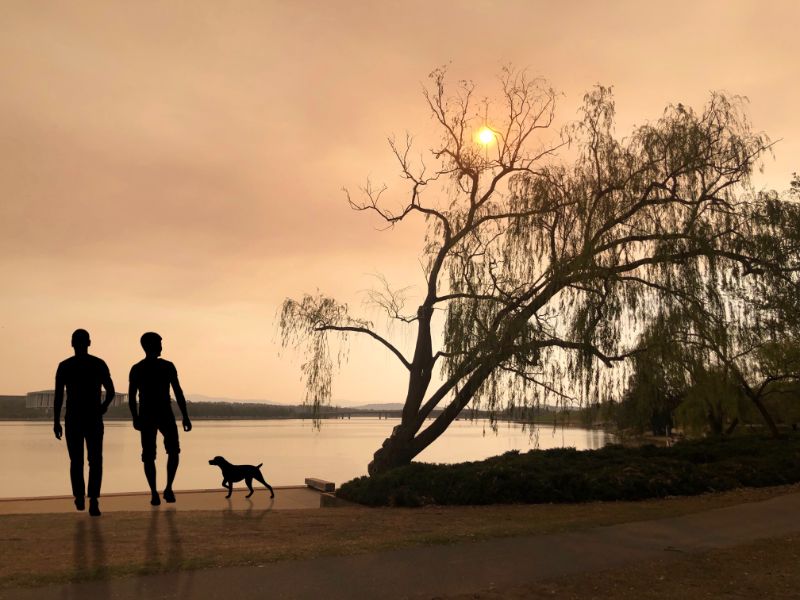Fast Acting: The Best Ways to Protect Your Pet From Smoke and Wildfires
It is simply part of life here in California. Various disasters like earthquakes, mudslides, and wildfires force people out of their homes every single year, and without preparations, the consequences can be dire.
Even when a natural disaster isn’t right around the corner, though, pets and people can still be affected by it. Wildfire smoke can cause dangerous symptoms even if the flames are many miles away. As a result, it is important to know how to protect your pet from smoke.
Wildfire Particulate Matter
Fires all over the west have created health challenges for numerous animal species. Unlike livestock and wild animals, pets have the ability to stay indoors when air quality plummets. Keeping your pet inside the house with the windows sealed shut is the best way to control their exposure to the harmful effects of smoke, burned chemicals, and fine particulates.
Way Of Life
Many pets find it hard to adjust to this new way of life, but hopefully, the situation is temporary and it sure beats the alternative!
You’ll still be able to take them outside for short bathroom breaks, but it’s essential to limit their exertion levels while out of the house. Watch the news for air quality reports every day and plan around times of the day when the smoke is least potent.
Increased Risk from Wildfire Smoke
Carbon monoxide can be extremely harmful when inhaled with wildfire smoke, but it’s not the only risk. Hydrogen cyanide can occur when various synthetic materials are burned. Fine particulate matter can lead to serious lung injuries or illness, including bacterial pneumonia. Finally, thermal burns in a pet’s airways are not only painful but can lead to low-levels of oxygen circulating in the bloodstream and shortness of breath.
Know the Signs of Smoke Inhalation
To protect your pet from smoke, it’s necessary to be able to identify the signs of smoke or dust inhalation:
- Coughing or gagging
- Sneezing or open-mouth breathing
- Excessive panting without exertion
- Nasal discharge
- Watery or itchy eyes
- Fatigue or weakness
- Lack of appetite or thirst
- Frothing at the mouth
If your pet is very young or old, suffers from heart or lung problems, or has other pre-existing conditions, they may have a more acute reaction to smoke. It is always best to respond quickly to any of the above symptoms and seek emergency help for your pet.
Protect Your Pet From Smoke
Oxygen therapy may be crucial to a pet suffering from smoke inhalation. Pets can suffer the following smoke-related neurological deficits:
- Blindness or deafness
- Seizures
- Nerve damage or partial paralysis
- Ataxia (loss of coordination)
- Changes in mental activity
These signs may not appear immediately. They may result over time if an animal doesn’t receive treatment, underscoring the necessity of quick and decisive action.
Always plan your evacuation with your pets in mind, and let us know if you have any questions or concerns.

